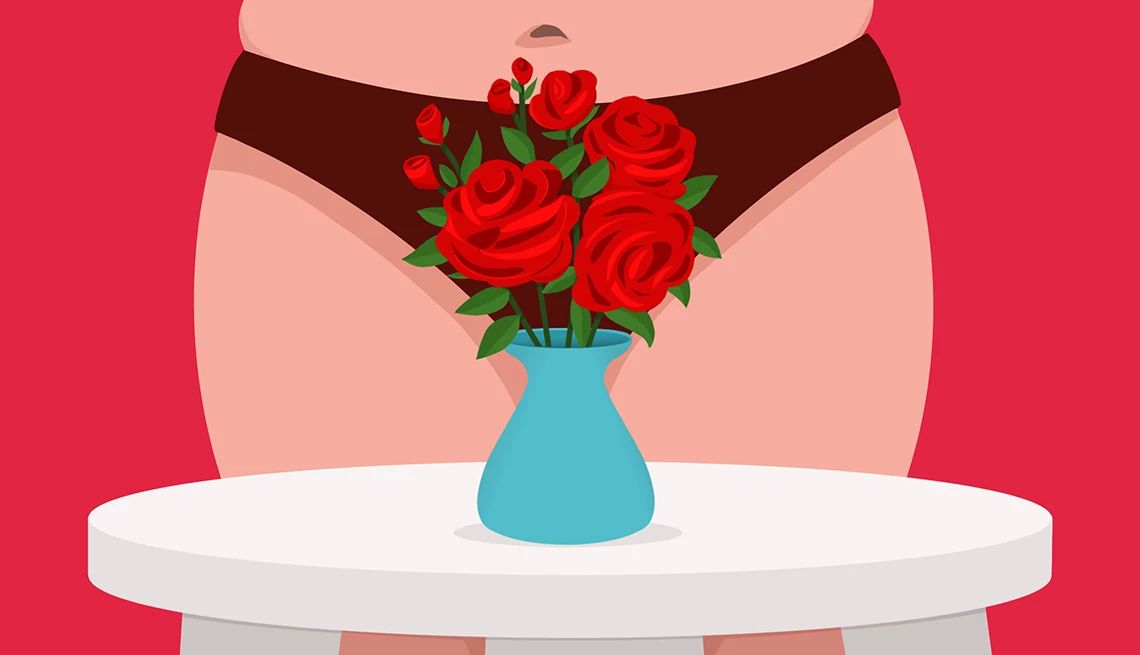AARP Hearing Center


Confession: I’ve been washing my lady parts incorrectly my entire life. No soap on the vulva — who knew?
This week our sexual health experts talk about vaginal hygiene and so much more. Consider this a teaching moment.
I’m a woman in my 70s with a small amount of bladder leakage that creates an odor. What is the best way to prepare my genital area for oral sex that won’t turn my partner off? Is it enough to simply wash before sex?
Washing before sex should do it, according to Maureen Slattery, an ob-gyn and certified sexual health counselor. But — get this — there’s a right way and a wrong way to cleanse your genital geography. My conclusion after talking to our experts? Vaginal maintenance should come with its own instruction manual.
First, about that odor. It’s possible that the smell isn’t coming from your urine but your skin, according to ob-gyn Anita Mikkilineni. If you have a lot of fat folds — in the thighs, groin, butt and belly — it’s not uncommon for sweat and bacteria to build up, emitting an odor that you might mistake for urine, she says. There’s even a name for the condition: intertrigo. Mikkilineni says to keep that skin thoroughly cleansed and see if you notice a difference.
The do’s and don’ts of genital hygiene. Mikkilineni recommends against using any scented lotions or soaps. In other words, keep it natural. As she puts it: “It’s not supposed to smell like flowers down there.” And never douche or use soap in the vagina.


In the Mood
For AARP’s In the Mood column, writer Ellen Uzelac will ask experts your most pressing 50+ sex and relationship questions. Uzelac is the former West Coast bureau chief for The Baltimore Sun. She writes frequently on sex, relationships, travel and lifestyle issues.
Also, stick with water to wash the vulva — including the lips, labia and clitoris, says urogynecologist Padma Kandadai. Why? “The tissue between the labia is sensitive and can become irritated with soap,” she says, adding that it’s fine to use a mild, fragrance-free body soap to wash the pubic hair.
Slattery says you can also use wipes to cleanse the genitals — but to treat them with caution. She suggests trying out wipes made with coconut water. “Just look for something with minimal additives,” she says. “I also would not use them all the time, just after working out or to wash up quickly before sex. Not everyone will tolerate every formulation of them.”
What about vaginal deodorant? Slattery and Mikkilineni both recommend a product called Lume, a deodorant developed by an ob-gyn that can be used on the vulva and elsewhere on the body. It comes in a cream and spray and can be found online and at many grocery and drug stores.
Rule out any infections. Just to be on the safe side, Mikkilineni recommends that you see a health care provider to be checked for vaginitis or a urinary tract infection — both of which can impact how the vagina smells.




































































You Might Also Like
My Female Partner Wants More Oral Sex. Help Me Get Better!
Our experts offer advice on how to go from good to great
We Have Trouble Getting Aroused After Mastectomy
Couple has a tough time figuring out how to get in the mood after wife's surgery
I Lack Sensitivity in My Penis, Making It Difficult to Orgasm
Our experts weigh in on medical and non-medical options for this common issue
In The Mood
Writer Ellen Uzelac asks experts your most pressing 50+ sex and relationship questions